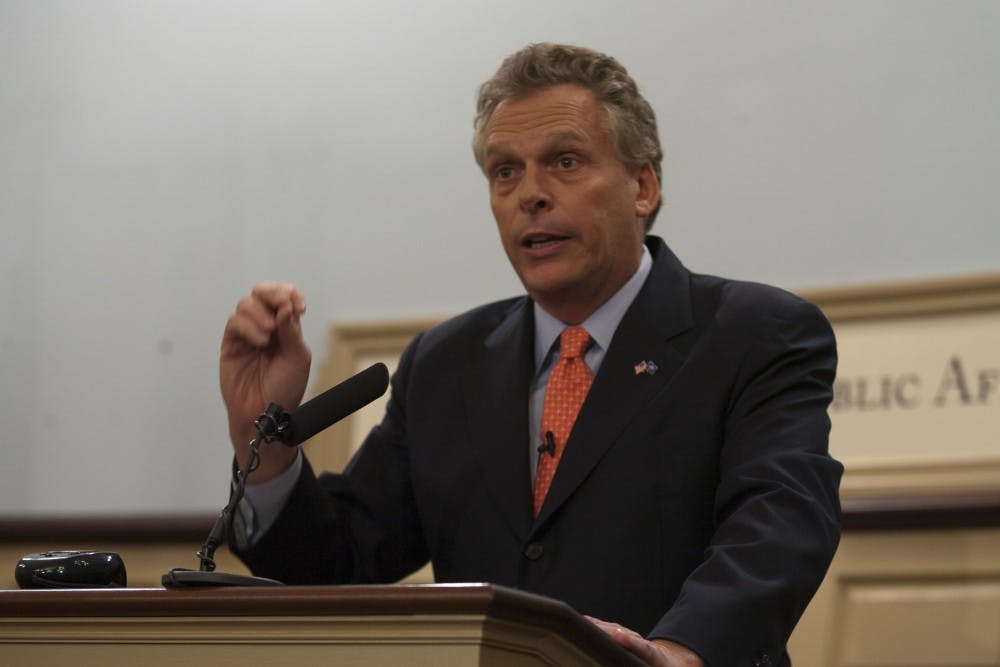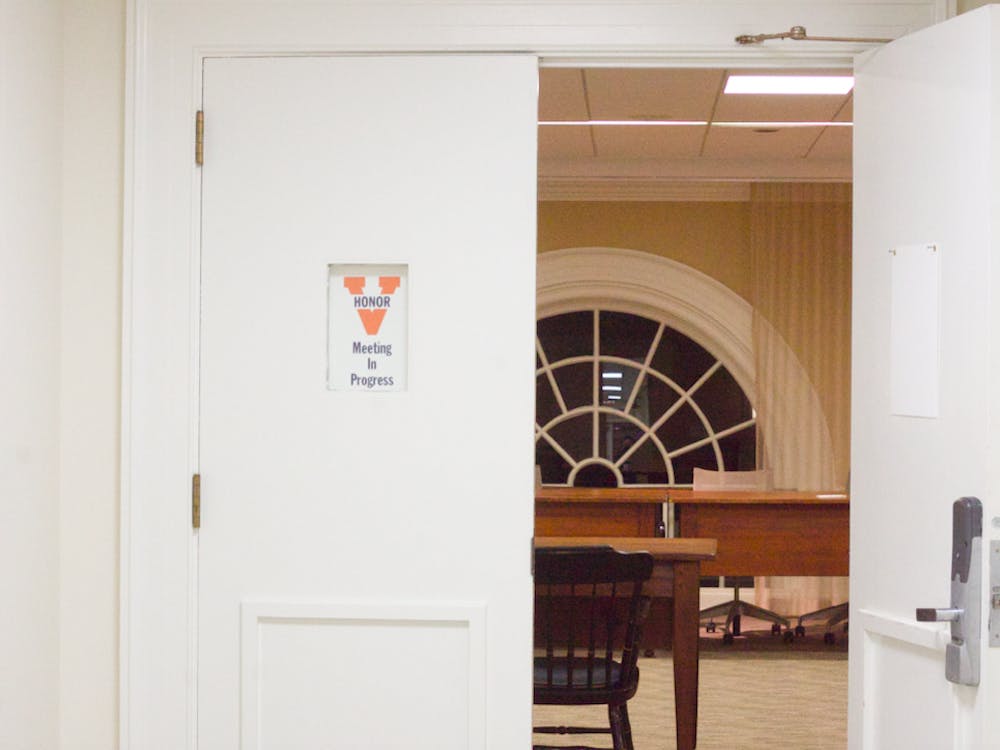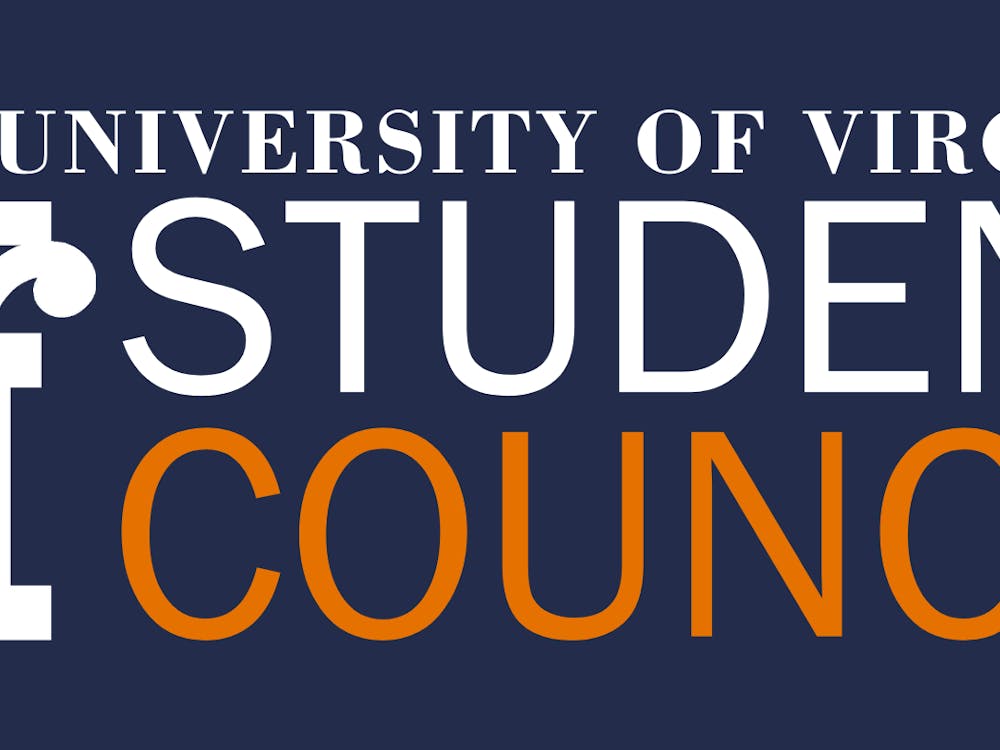Recently, Gov. Terry McAuliffe announced who he would be appointing to the Board of Visitors for public universities in Virginia. Given that these appointments are incredibly important due to the power vested in these individuals, one might believe that those who are appointed would have extensive experience in running universities. Unfortunately, McAuliffe has decided to continue the tradition of appointing members with political ties to himself or the Democratic Party. This tradition is an important one to break if we want those governing the University to be experienced in higher education and free from political pressure.
To see this trend, all you have to do is follow the money. For his recent appointments, McAuliffe has appointed Robert M. Blue, Robert D. Hardie and Maurice A. Jones to the University of Virginia Board of Visitors, while also reappointing one current board member, John A. Griffin. Out of these appointments Blue, Jones and Griffin have ties to the governor through politics or donations. Griffin works for Blue Ridge Capital and Blue works for Dominion Energy, both of whom have contributed large sums of money to both political parties in Virginia. Jones has political connections to the governor due to his past service as Virginia’s secretary of commerce and trade in McAuliffe’s administration, and his service as deputy chief of staff to Sen. Mark Warner (D-Va.), during his term as governor. It is unfortunate that these appointees have achieved their posts due to their connections to those in power, not because of their experiences in higher education.
Unfortunately this appointment system is a bi-partisan problem for Virginia. Former Gov. Bob McDonnell also appointed members to the Board of Visitors with their political connections in mind. Aside from Griffin, McDonnell also appointed several members who have connections to him or the Republican Party. These include, but are not limited to John L. Nau, III, president and CEO of Silver Eagle Distributors, L.P., who donated money to McDonnell's campaign, and Allison Cryor DiNardo who served under President George H.W. Bush as deputy associate director of presidential personnel.
Many of these individuals who I have noted have long standing ties to the University and I believe ultimately do have the best interests of the University at heart. That being said, even with good intentions, many of these individuals do not have the experience necessary to oversee a University. This inexperience is a problem because it can manifest itself in the public sphere. I am talking of course about the termination and prompt reinstatement of University President Teresa Sullivan in 2012. Before Sullivan’s attempted ouster, board members seemed to have a particular vision of where the University should be going, and felt that it was the president’s fault that these changes were not occurring. By firing Sullivan, they felt that a new president could bring about more dynamic change to the University. Instead, their decision was met with a backlash from students and professors. The aspirations of members of the board seemed to reflect the wishes of donors, but did not reflect the real priorities of the University. Being able to identify these challenges more effectively and act on them is important, and the board’s inexperience was evident. The underlying fact that these positions need experienced appointees was understood by McDonnell in his next round of appointments after the debacle, with more experienced individuals receiving appointments.
It is precisely because of crises like the failed termination of Sullivan that the Board of Visitors needs figures experienced in higher education. The process of giving these appointments to donors is so prominent that the practice is noted in a New York Times article about the failed ouster of Sullivan. This long-standing practice needs to stop, because as long as this system of awarding appointments to donors and party figures stays in place, there will be more issues.
To fix these problems, I believe Media Studies Prof. William G. Little’s ideas that he outlined in a Washington Post article should be implemented. I agree with Little’s assertion that a selection committee, comprised of the many prominent interests at the University, should pick the members of the Board. This system would ensure that the concerns of alumni, the administration and faculty are represented and lead to a more effective Board that can tackle the serious problems at the University.
Jacob Asch is an Opinion columnist for The Cavalier Daily. He can be reached at opinion@cavalierdaily.com.






